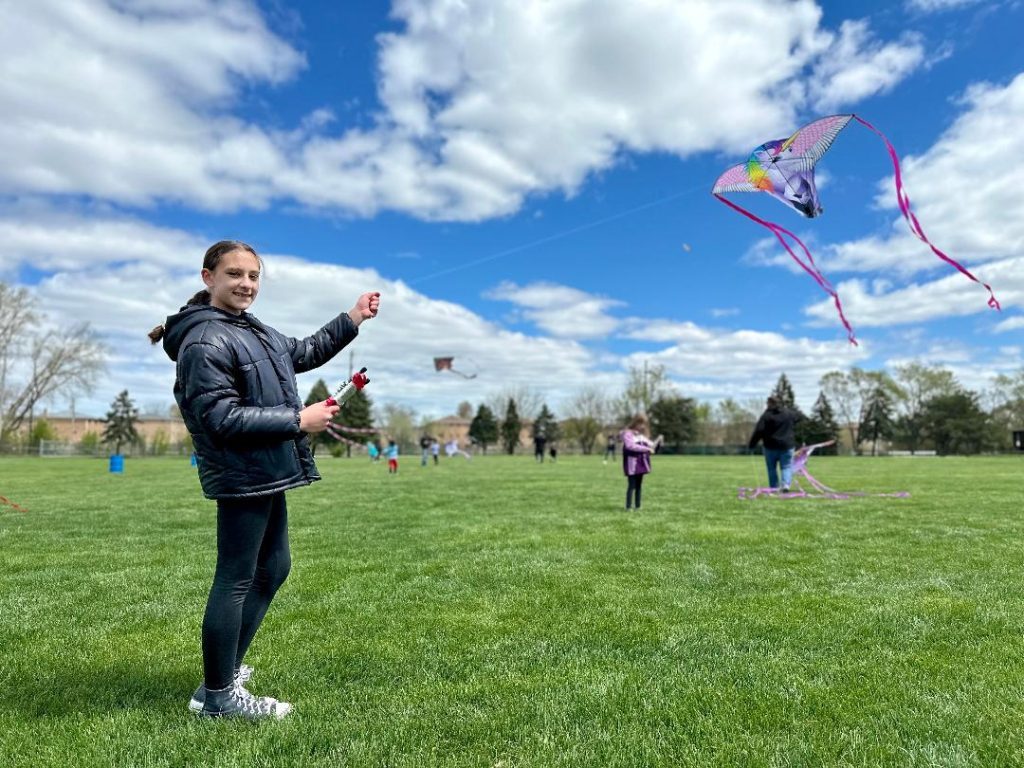
CAPITOL RECAP: State leaders plan to talk to Treasury about stimulus spending
By Capitol News Illinois
SPRINGFIELD – State officials said Wednesday, May 12, they would petition the U.S. Treasury to use federal stimulus funding to repay borrowing from the Federal Reserve that was undertaken amid the COVID-19 pandemic.
The state borrowed $3.2 billion from the Federal Reserve during the pandemic, plus another $400 million borrowed from the state treasurer’s office, and the short-term obligations are coming due.
Both Comptroller Susana Mendoza and Gov. JB Pritzker had said in earlier interviews that they wanted to use a portion of the roughly $8 billion in federal relief funds that Illinois expects to receive through the recently-passed American Rescue Plan to pay off the Federal Reserve loans. But new guidelines from the U.S. Treasury Department that were released on Tuesday specifically prohibit using those funds for “payment of interest or principal on outstanding debt instruments, including, for example, short-term revenue or tax anticipation notes, or other debt service costs.”
State Rep. Michael Zalewski, D-Riverside, who chairs the House Revenue Committee, said in an interview Wednesday that he does not believe the relief funds can be used to repay the Federal Reserve and that any repayment plan will have to be “part of a broader budget conversation.”
But Mendoza said in a statement Wednesday that she believes there may be room to negotiate with Treasury on the use of those funds.
“The Dept. of the Treasury said it welcomes feedback to the interim guidance on permitted uses of the stimulus funds,” she said in an email statement. “(The Governor’s Office of Management and Budget) and our office will be seeking to clarify with the Treasury that guidance against using these funds to pay debts unrelated to COVID-19 does not prevent their use for paying debts accrued for spending related to COVID expenses. Our office has made clear that stimulus funds will not be used to pay legacy costs such as pensions.”
During a separate news conference Wednesday, Pritzker insisted the state is committed to repaying the Federal Reserve loans one way or another, but said he believes the state should be allowed to use the relief funds for that purpose.
“Look, the federal government is sending us dollars and then telling us that we can’t then send those dollars back to the federal government to pay for the borrowing we took out last year. Clearly it doesn’t make a lot of sense and so we’ve talked to the Treasury Department about that,” he said.
* * *
MENDOZA WANTS CREDIT UPGRADE: Illinois Comptroller Susana Mendoza is asking the nation’s three major credit rating agencies to reconsider the state’s credit rating with an eye toward a possible upgrade.
In an April 28 letter to executives at Moody’s Investors Service, S&P Global Ratings and Fitch Ratings, Mendoza argued that Illinois has virtually eliminated its backlog of past-due bills while keeping current on its bond payments and pension obligations, all in the midst of a global pandemic.
“Please be assured that my office is doing everything possible in managing the current backlog of bills and addressing Illinois’ finances head on,” Mendoza wrote. “The Office of Comptroller urges your agencies to consider these positive factors and progress made paying down the backlog when evaluating Illinois’ credit worthiness.”
Illinois currently has the lowest investment-grade credit rating available from all three rating agencies, one notch above what is considered “junk bond” status.
Mendoza wrote that letter on the same day her office announced that the state’s bill backlog – actually, the sum total of all outstanding vouchers waiting to be paid – had been decreased to just $3.5 billion.
According to the letter, the oldest outstanding commercial voucher at that time was just two days old. The backlog was within the 30-day billing cycle that is common in the business world, Mendoza’s office said.
In fact, Mendoza said during an interview Tuesday that she believes the state now needs to come up with another word besides “backlog.”
“The key statistic here is that right now we are up to date with all of our commercial vouchers,” Mendoza said. “So there is no one waiting to get paid in my office. There could still potentially be some people that are waiting to get paid because their invoices might be at the agency level and they just haven’t sent them to us. But you’re talking about a minute group of people.”
* * *
MANDATORY LIFE APPEAL: A man who was found guilty for acting as the lookout in a double homicide nearly three decades ago is asking the Illinois Supreme Court to find his mandatory life sentence without parole unconstitutional.
A lawyer for Antonio House argued before Supreme Court Tuesday, May 11, that his life sentence for a crime committed when he was 19 years old violates the so-called proportionate penalties clause of the Illinois Constitution.
This clause in the constitution states: “All penalties shall be determined both according to the seriousness of the offense and with the objective of restoring the offender to useful citizenship.”
Lauren Bauser, an assistant appellate defender who represents House, said the court should allow House to be resentenced because “the record in this case demonstrates that Antonio’s mandatory life sentence without the possibility of parole for a crime he committed as a teenager, as a teenage lookout, who wasn’t present at the time of the killing, shocks the conscience.”
House was a member of the Unknown Vice Lords street gang at the time of the September 1993 murders of Stanton Burch and Michael Purham in Chicago.
The killings were related to a gang conflict after Burch and Purham, who were members of a rival gang, took over a street corner for drug sales that previously was Unknown Vice Lords’ territory.
House was arrested in October 1993 for participating in the armed kidnapping of Burch and Purham, and acting as lookout when the men were fatally shot.
A jury found House guilty of two counts of first degree murder and two counts of aggravated kidnapping. He was sentenced to two consecutive life sentences, followed by 60 years in prison.
Under Illinois law at the time, a conviction for murdering more than one person carried a mandatory life sentence without parole.
Since his conviction and sentencing, House has appealed his case, focusing on two primary claims.
First, he makes an innocence claim based on the fact that a key witness who testified she saw House kidnap Burch and Putnam has now recanted that testimony. This recanted testimony entitles him to a hearing on his claim of innocence, he argues.
Second, House argues that recent U.S. Supreme Court cases demonstrate a consensus against the imposition of mandatory life sentences for juveniles. In addition, he argues that scientific advances in brain research indicate that evolving societal standards relating to juvenile sentences should also apply equally to older teenagers like 19-year-old House.
* * *
MATERNAL CARE EXPANSION: The Illinois Senate passed legislation Wednesday expanding maternal and postpartum care in Illinois,.
Senate Bill 967, sponsored by Elgin Democratic Sen. Cristina Castro, passed the Senate floor Wednesday on a 58-0 vote. It will head to the House for further consideration.
The legislation requires the Illinois Department of Human Services to update its maternal health programs for pregnant and postpartum individuals determined to be “high-risk” under new criteria, with these services being operated by registered nurses, licensed social workers and other appropriate staff approved by IDHS. Illinois Department of Public Health policies would be updated as well with new guidance and requirements for hospitals that deliver babies.
All hospitals that qualify under the statute must have written policies following IDPH guidelines on maternal and postpartum care, as well as the leading causes of maternal mortality.
SB 967 would also mandate that IDHS, IDPH, and the Illinois Department of Healthcare and Family Services revise rules related to follow-ups for high-risk infants by June 2024 in order to improve outcomes and reduce the significant racial disparities in infant and maternal death rates.
Under the bill, private insurance plans would be required to provide postpartum coverage up to one year following the end of a pregnancy for complications relating to that pregnancy. This would include access to treatment for “mental, emotional, nervous or substance use disorder or condition(s)”.
* * *
HAIR DISCRIMINATION: An amendment to Senate Bill 817, sponsored by Chicago Democratic Sen. Mike Simmons, would prohibit all Illinois schools from making dress code requirements that prohibit hairstyles historically associated with race, ethnicity or hair texture. The legislation specifically cites braids, locks and twists as hairstyles protected by the statute.
The bill passed the Senate on a 40-13 vote Wednesday, May 13.
“This is a really straightforward proposition,” Simmons said during his May 4 testimony before the committee. “As somebody who has been targeted and discriminated myself by schools, and has been resilient and I don’t want the next generation to have to go through this.”
The committee ultimately voted to table Simmons’ bill during its previous hearing due to concerns over the enforcement mechanisms. Many Democrats expressed opposition to a provision that would have withheld the allocation of dollars from the state’s evidence-based funding model for education from school districts that were non-compliant with the bill.
While Simmons testified during that hearing that he wanted the legislation to have “teeth” behind its enforcement, the version he introduced Tuesday removed that provision from the bill.
* * *
PRESCRIPTION DRUG REPOSITORY: House Bill 119 would establish a prescription drug repository program, allowing certain unused prescription drugs to be returned to pharmacies and reused for eligible populations. The bill would allow individuals to return unexpired prescription and over-the-counter medication which remains in unopened, tamper-evident packaging.
It passed the House and will head to the full Senate for consideration after passing committee.
Unused medications could be returned by individuals at participating pharmacies, and prescription donors would be required to provide information regarding the strength and quantity of each donation.
“Instead of medication ending up in landfills, this would create an opportunity for there to be relief for Illinoisans who are struggling to afford their medication,” chief Senate sponsor Karina Villa, D-West Chicago, said during a Tuesday committee hearing.
Villa said the program allows for collection of “safe, unused, unexpired” medications which can then be made available “at a minimal cost to patients.”
George Wang, co-founder of the nonprofit organization SIRUM, or Supporting Initiatives to Redistribute Unused Medicine, told the committee that through this program, unused prescriptions could be sent to other charities or community health organizations to assist vulnerable low-income patients and those in need of low-cost prescriptions.
“Typically, what happens in these programs is that the medicine would be donated to a charitable pharmacy and perhaps a free clinic, and then that entity would dispense the medicine,” Wang said.
Villa said the bill would make Illinois one of more than 20 states to provide a prescription drug repository program.
* * *
FEMININE HYGIENE AT HOMELESS SHELTERS: The Senate Health Committee on Tuesday, May 11, passed House Bill 310, which would require homeless shelters to provide feminine hygiene products. It heads to the full Senate for a vote after already passing in the House.
The bill would require that products such as sanitary napkins, tampons and panty liners be made available for free at all shelters that provide temporary housing assistance to women and youth.
It applies to public and private shelters, but the shelter’s obligation to provide the products is “subject to the availability of funds in the homeless shelter’s general budget.”
Sen. Laura Fine, D-Glenview, said the bill would also encourage individuals to donate feminine hygiene products, which are often in short supply at homeless and temporary support shelters.
“This puts something very important on people’s radar screens, because we think of donating food or clothing, but this is also going to open people’s minds to donating these feminine products,” Fine said.
The bill passed committee by an 11-2 vote.
* * *
TOURISM CAMPAIGN: Gov. JB Pritzker announced a new $6 million tourism advertising campaign Wednesday, May 12, aimed at attracting visitors to the state and sparking economic activity following the COVID-19 pandemic.
The multimedia campaign, featured around the theme “Time for Me to Drive,” showcases various destinations in all parts of the state and aims to reflect Illinois as a top destination for road trips.
According to a news release, the campaign reflects increasing consumer trends to take shorter trips by car to destinations closer to home following the pandemic. The campaign is the first to be released by the state since the outset of the COVID-19 pandemic last year.
Pritzker said the new campaign introduces tourists to “an Illinois they may not have seen before,” including destinations such as state parks, the Shawnee National Forest and the Garden of the Gods.
The campaign also promotes the cities of Chicago, Springfield and Galena as potential road trip destinations.
Sylvia Garcia, acting director of the state’s Department of Commerce and Economic Opportunity, said prior to the COVID-19 pandemic, Illinois saw over 120 million visitors annually who collectively spent more than $40 billion in the state.
Garcia said those numbers were “cut in half” as a result of the pandemic last year.
The advertising campaign includes television, radio, digital and print spots. Garcia said the campaign would primarily be shown in the seven states surrounding Illinois and 18 total markets.
Jacobson said 20,000 hotel workers are still out of work following pandemic-related closures and shutdowns, and that promoting tourism would be key to increasing tax revenue in the state.
* * *
ENERGY HEARING: The Illinois House Energy and Environment Committee on Tuesday, May 13, discussed the latest proposal to enter the energy overhaul discussion – Gov. JB Pritzker’s Consumers and Climate First Act.
House Bill 4074, which is Pritzker’s 900-page proposal, was released at the end of April with the goal of transitioning Illinois to 100 percent carbon-free energy – including nuclear power – by 2050.
Deputy Gov. Christian Mitchell said many of the ideas in Pritzker’s proposal align with the goals of other energy bills, especially the Clean Energy Jobs Act, which is sponsored by Rep. Ann Williams, D-Chicago, and initially introduced in 2019.
Some of the similar goals include CEJA’s creation of clean workforce hubs and energy investments in wind turbines and solar power, as well as electrifying the transportation sector.
The governor’s bill also builds on labor provisions found in amendments made to House Bill 1472, known as the Climate Union Jobs Act, such as labor standards for utility-scale projects and other project labor agreements like prevailing wage.
It also builds off the Path to 100 Act, contained in House Bill 2640. That bill would increase the cap on energy bills from about 2 to 4 percent to provide funding for renewable projects, avoiding what its advocates call the “solar cliff.” The governor’s bill sets the rate cap at 3.75 percent.
“None of the pieces are there in total but we believe it’s a strong compromise proposal,” Mitchell said.
Pritzker’s bill aims to phase out coal by 2030 and natural gas by 2045 through declining caps on carbon emissions, and increases the state’s commitment to renewable energy, placing Illinois on a path to at least 40 percent of energy coming from renewable energy resources by 2030.
It also sets the goal of putting 1 million electric vehicles on the road by 2030.
The governor’s bill also contains utility accountability and ethics provision, including an end to automatic formulaic rate increases for utility companies.
The bill also looks at possible restitution for ratepayers, expanding ethics filings for legislators and members of the executive branch who have family members on the payroll of utilities, and subjecting the Citizens Utility Board to the freedom of information act, among other ethics measures.
Mitchell also said the bill recognizes that natural gas remains an important bridge fuel as the state transitions to carbon-free resources and introduces an $8 per ton carbon price, similar to the Regional Greenhouse Gas Initiative, which is in place in more than 10 states.
* * *
SPECIAL EDUCATION BILLS: A Senate committee passed two bills related to special education Tuesday, May 11, among several others.
Springfield Democrat Sen. Doris Turner’s House Bill 41 would add a new responsibility for the state when placing children in special education facilities. Under the proposal, before a child could be placed in an out-of-state residential facility, the entity behind that decision – whether it is a school district, Illinois agency or court – must refer the child’s guardians to a comparable in-state facility to consider.
The provision would also require the entity behind an out-of-state placement of a special education student to review that placement annually, and each year refer an in-state facility to the child’s guardians.
House Bill 40, sponsored by Sen. Bill Cunningham, D-Chicago, would change how students using special education services age out of the program. Under current Illinois law, special needs students lose their eligibility and are removed from school the day before they turn 22.
Cunningham’s bill allows students in special education to be eligible for services throughout the entire school year in which they turn 22, allowing them to graduate at the same time as their peer group.
Both bills were advanced to the Senate floor unanimously, having already passed in the Illinois House.
Two bills that were subject to lengthy testimony and debate during the Senate Education Committee’s previous hearing on May 4 also advanced to the Senate floor Tuesday.
* * *
REOPENING: Gov. JB Pritzker said Thursday that Illinois will enter the “bridge” phase to full reopening on Friday, May 14. And barring any reversal of current trends, Phase 5, or full reopening, will begin on June 11.
He also announced that residents can now obtain COVID-19 vaccines from their physicians’ offices, rather than just designated vaccine sites, as public health officials continue to confront hesitancy within many communities to accept the vaccines.
Thursday’s announcement came as the state reached a new benchmark of having 55 percent of adults age 16 and over, and 80 percent of people age 65 and over, having received at least one dose of vaccine, according to the Illinois Department of Public Health. Meanwhile, the daily number of new cases, hospitalization rates and intensive care unit usage have all been falling or leveling off.
Under the bridge phase – a transition phase between the current Phase 4 mitigations and the virtually complete reopening of Phase 5 – certain capacity limits will be eased at various kinds of events. Restaurants, for example, will be allowed to increase from 25 to 30 percent of capacity, as long as people maintain six feet of distance from one another, while offices, personal care facilities and retail service counters can increase from 50 to 60 percent of capacity.
When the state reaches Phase 5, Pritzker said, virtually all mitigation restrictions will be lifted, although the state will still follow guidelines from the U.S. Centers for Disease Control and Prevention regarding wearing masks in large, crowded situations and maintaining safe social distancing.
As of Thursday, the seven-day rolling average of daily doses administered stood at 70,063, down from a peak of nearly 133,000 per day in mid-April. But with the supply of vaccines now large enough to provide vaccines to anyone who wants one, Pritzker said he hoped that making them available through physicians’ offices will make it more convenient for more people.
Still, there remain pockets of society that remain hesitant, whether that be for cultural, political or religious reasons, and the Pritzker administration is continuing its public relations campaign to reach out to those communities.
* * *
LASALLE BILLS: Lawmakers representing the LaSalle Veterans’ Home, including Sen. Sue Rezin, R-Morris, unveiled new legislation that would allow inspectors general of state agencies to subpoena former state employees.
The legislation was prompted by an investigation into the COVID-19 outbreak last year at the LaSalle home that killed 36 veterans.
The former director of the Illinois Department of Veterans’ Affairs, Linda Chapa LaVia, and the former LaSalle home administrator, Angela Mehlbrech, both declined to be interviewed for the investigative report compiled last month by the state Department of Human Services’ inspector general.
Chapa LaVia, who resigned, and Mehlbrech, who was fired, left their respective positions in the aftermath of the deadly outbreak at LaSalle.
Rezin said she filed Senate Bill 1445 in response to the decisions by Chapa LaVia and Mehlbrech to not cooperate with the investigation by the DHS’ inspector general.
The bill allows agency inspectors general to subpoena a former state employee in the course of an investigation undertaken to “correct a systemic issue, problem, or deficiency,” according to the bill.
It defines former employee as “a former agency director, senior administrator or any other individual who had the authority to implement policy action for the department, an agency under contract with the department or any facility or program operated for or licensed or funded by the department.”
In addition to SB 1445, Rezin has introduced a bill that would require facilities licensed and operated by the state to conduct outbreak preparedness drills, and a separate bill to require an IDPH onsite visit within one business day of an infectious outbreak at a veterans home.
Those bills would codify recommendations made in a 2019 audit of the Quincy Legionnaires’ disease outbreak that killed 13 veterans.
Rep. David Welter, a Morris Republican who also represents the LaSalle home, passed a House Resolution by a vote of 111-0 that calls on the Illinois Auditor General to conduct a separate investigation of the deadly LaSalle outbreak.
* * *
EDUCATION FUNDING: Citing an “improved” economic outlook, Gov. JB Pritzker announced Thursday his support to increase evidence-based education funding in the state by $350 million in fiscal year 2022 which begins July 1.
In his February budget proposal, Pritzker originally proposed flat spending for education, citing “financial uncertainty” amid the COVID-19 pandemic.
It would have been the second consecutive year in which the state failed to add $350 million to the funding formula – a number written into state statute as a goal aimed at driving new money to the districts that are furthest from funding “adequacy.”
The announcement comes following the latest report from the Commission on Government Forecasting and Accountability, which cited improved revenue numbers for the current fiscal year as the state works toward a full economic recovery from the pandemic.
Per that report, after revenues fell by $2.74 billion last April, base general fund revenues in April 2021 grew $1.779 billion, in part because April income tax payments were delayed one year ago.
Per the budgeting process, both Houses of the General Assembly must approve a spending plan, then Pritzker would have the opportunity to sign or veto it.
House Majority Leader Greg Harris, D-Chicago, in a news conference that occurred in Springfield at the same time Pritzker’s was going on in Chicago, said lawmakers are well into the process of planning a budget for the upcoming fiscal year. He said he was optimistic about the latest COGFA report, but the state’s financial picture is still somewhat bleak.
“We’re seeing some very good numbers in the state,” he said. “That being said, we still are looking at next year, a budget deficit of about $1.4 billion that we’ll have to solve for, and some new revenue could certainly help that. But it’s not going to solve the entire problem.”
One key part of the governor’s proposal to balance the budget is to make several changes to the corporate tax structure – changes he calls closing corporate tax “loopholes,” which Republicans call important business “incentives.”
* * *
ENERGY TAX CREDITS: Senate Bill 1747, introduced by Grayslake Democratic Sen. Melinda Bush as the Illinois Energy Transition Zone Act, creates tax advantaged districts to incentivize “green energy enterprises” in areas previously reliant on coal and nuclear energy.
Areas that contained a coal or nuclear energy plant, coal mine, or nuclear waste storage facility are eligible to become one of these energy transition zones.
Companies involved in the production of green energy, defined in the statute as solar, wind, water, geothermal, bioenergy or hydrogen fuel, qualify as businesses that can benefit from the zones. These businesses gain a number of tax advantages from working in these areas, including exemption from state and local taxes on gas and electricity, as well as being exempt from use and occupation taxes when they purchase buildings in the zone for energy production.
The bill was one of the few which saw opposition Thursday,May 11, passing 46-11. It will head to the House.
* * *
PULASKI JAIL VIOLATIONS: An unannounced inspection by federal authorities of the Pulaski County Detention Center found that supervisors were not enforcing COVID-19 safety protocols, such as masking and social distancing requirements, for inmates being detained by U.S. Immigration and Customs Enforcement.
The jail in Pulaski County, which is in the southernmost part of Illinois and borders Kentucky, houses inmates from Pulaski and Alexander counties, as well as individuals who are arrested by ICE and face deportation.
The facility is one of three jails that ICE has contracts with in Illinois. Jails in McHenry and Jefferson counties also house ICE detainees.
The inspection, conducted from November 2020 to January 2021, found the facility violated five ICE detention standards “that threatened the health, safety, and rights of detainees,” according to the report issued April 29 from the U.S. Department of Homeland Security’s Office of the Inspector General.
According to the report, supervisors at the Pulaski County facility “did not consistently enforce precautions including use of facial coverings and social distancing, which may have contributed to repeated COVID-19 transmissions at the facility.”
As of May 5, the Pulaski facility reported 114 total cases of COVID-19, zero deaths and two active COVID-19 cases, according to data from ICE.
The report also documents the facility lacked emergency dental services and that the medical unit did not have procedures in place for chronic care follow-up.
In addition, it found that the facility was not consistently providing required oversight for detainees in segregation by conducting routine wellness checks.
The report further documented deficiencies in staff communication practices with detainees.
Representatives from the Pulaski County Detention Center did not respond to requests for comment.
* * *
MEDICARE ENROLLMENT: The Senate also passed Senate Bill 147, amending the state’s insurance code regarding the subject of Medicare. The legislation would create a new Medicare enrollment period for Illinois residents between ages 65 and 75, coinciding with their birthday.
Each year, residents will be entitled to an open enrollment period of 45 days starting on their birthday that allows them to buy a Medicare supplement policy with equal or less benefits than their current Medicare plan.
During this enrollment period, companies that offer those supplemental policies would be unable to deny or change the pricing of coverage due to health status, previous claims or medical conditions. Those companies also would be required to give notice of this enrollment period annually to policy holders, overseen by the Illinois Department of Insurance.
The measure passed 54-0 and will head to the House for further consideration.
* * *
REDISTRICTING ‘HYPOCRISY:’ Illinois House Republicans continue to demand a “fair” redistricting process, following a news report depicting Democratic lawmakers meeting behind a closed door to discuss the mapmaking process.
The “secretive” room on Capitol grounds where House Democrats are said to be drawing maps was first reported by WCIA-TV’s Mark Maxwell. In response to the report, House Republicans held a news conference Thursday, May 6, outside of the room to address their concerns.
The U.S. Census Bureau has not released official block-level data that Republicans and advocacy groups say is necessary to ensure a full accounting of Illinois’ citizens. That data isn’t expected to be released until Sept. 30, which is past the initial June 30 deadline written in the Illinois Constitution for the General Assembly to draw maps.
The Census Bureau has released less descriptive data, including data from the American Community Survey, which doesn’t include the detailed, block-level data showing exactly where people live – the kind of data needed to draw equal-size legislative districts.
State Rep. Ryan Spain, R-Peoria, said the ACS data is not accurate and is not appropriate to use when drawing the map.
Democrats have not said exactly what data has been used in the mapmaking process thus far. They did, however, point to the House Redistricting Committee’s 30 public hearings on the matter, noting they heard testimony from advocacy groups and the public providing input on the process.
During an unrelated news conference Thursday, Democratic leaders brushed off the Republicans’ criticisms, saying this is the normal process that state lawmakers have used in years past.
“We are just following the process like we always do, (the Republicans are) doing the same thing,” said Rep. Lisa Hernandez, D-Cicero, assistant majority leader and chair of the Redistricting Committee.
She said ACS data is just one source, but not the sole source being used to draw the maps.
Capitol News Illinois is a nonprofit, nonpartisan news service covering state government and distributed to more than 400 newspapers statewide. It is funded primarily by the Illinois Press Foundation and the Robert R. McCormick Foundation.
Local News

Donate teddy bears to our local police
Spread the love. Peggy Zabicki Your correspondent in West Lawn 3633 W. 60th Place • (773) 504-9327 . Have you ever seen the 1955 movie The Night of the Hunter? The children in this movie show such bravery and acceptance in what life has thrown at them. They have to deal with unimaginable events and sadness. …
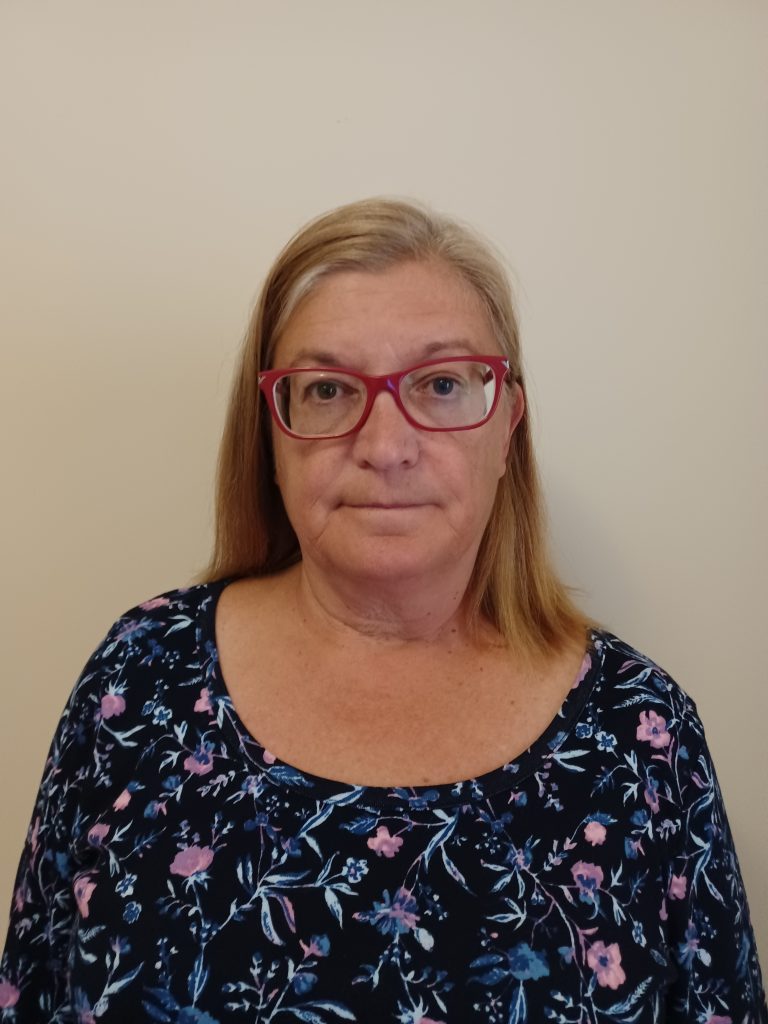
Boy Scouts collecting tattered flags for disposal
Spread the love. By Mary Stanek Your correspondent in Archer Heights and West Elsdon 3808 W. 57th Place • (773) 517-7796 . Goodbye April, hello May. Our American Flag, the symbol of our country, should always be treated with respect. But after bearing Chicago’s brutal winters and hot blazing summers along with being in the…
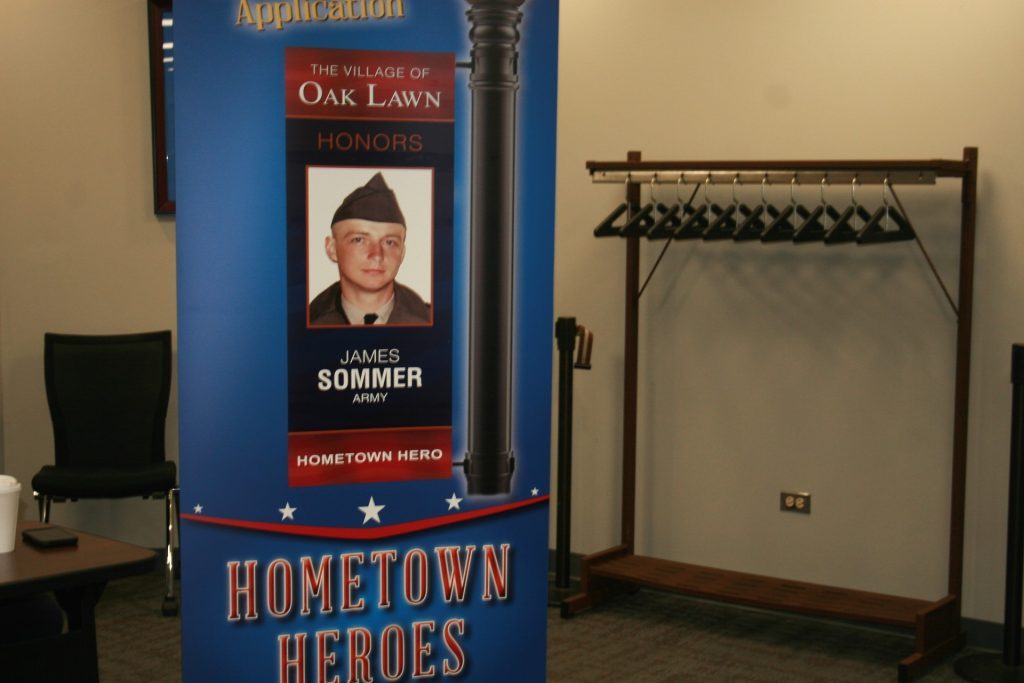
Oak Lawn trustee says village needs state grocery tax
Spread the loveBy Joe Boyle An Oak Lawn trustee said that Gov. J.B. Pritzker’s proposal to eliminate the state’s grocery tax will be costly for the village. Trustee William “Bud” Stalker (5th), accompanied by Mayor Terry Vorderer, recently returned from a fact-finding trip to Springfield where they learned more about the governor’s proposal to eliminate…
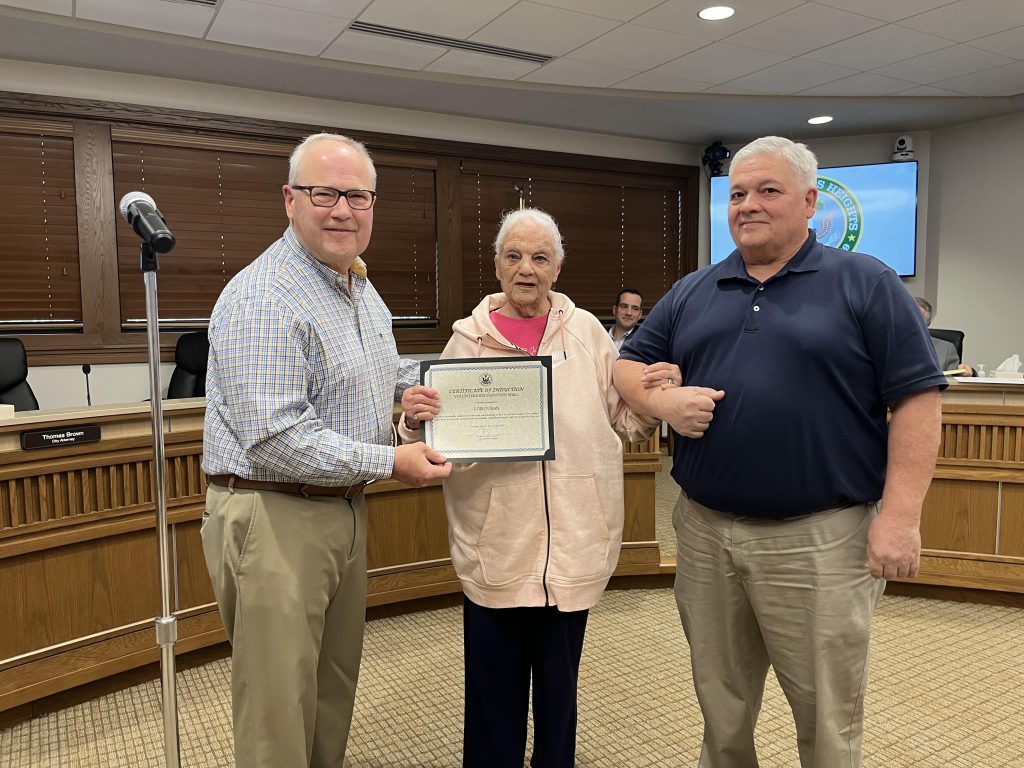
Palos Heights recognizes volunteers
Spread the loveBy Nuha Abdessalam Palos Heights handed out awards last week recognizing the services provided by volunteers through the years. The proclamations, which were read aloud during the city council meeting April 16, were a testament to the city’s volunteers and were handed out as part of Volunteer Recognition Week. Volunteers were cited for…

Boys Volleyball | Richards weathering struggles after run of success
Spread the loveBy Xavier Sanchez Correspondent After a tough weekend at the Smack Attack tournament, Richards got back into the win column with a two-set victory over Eisenhower in a South Suburban Red match. The Bulldogs made quick work of the Cardinals, winning 25-16, 25-15 on April 23 in Oak Lawn to snap a five-match…

SD218 puts on annual Arts Extravaganza
Spread the loveBy Kelly White The arts have become a major portion of the curriculum Community High School District 218. Showcasing those many talents, the Friends of CHSD 218’s Education Foundation proudly hosted its 15th annual Arts Extravaganza on April 5 at Eisenhower High School in Blue Island. “The Arts Extravaganza is a great event…
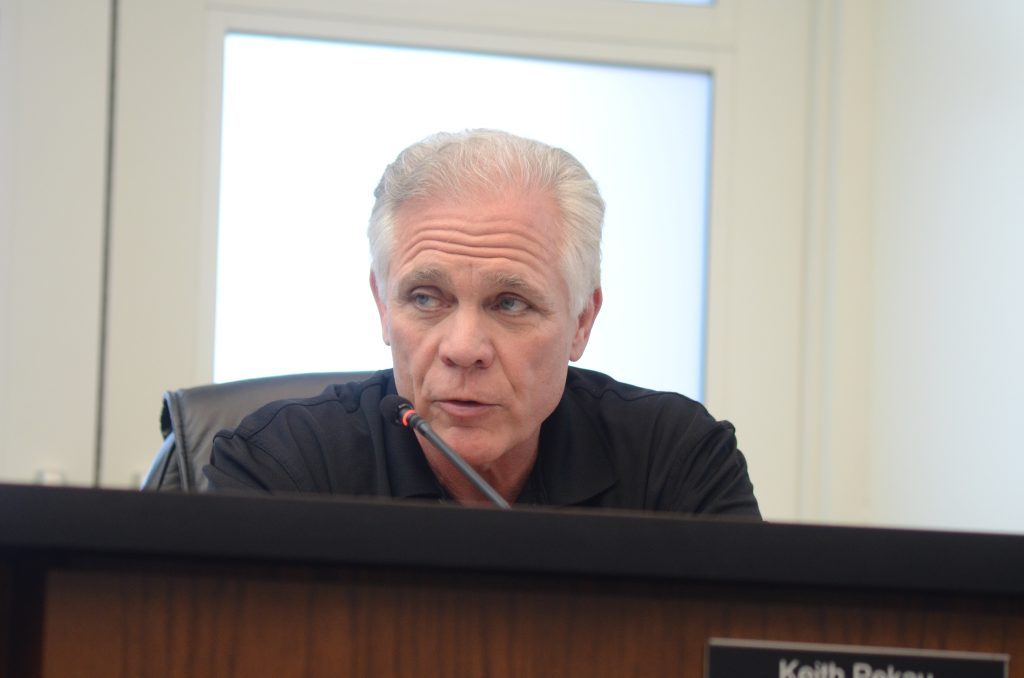
Gaming licenses to be tougher to get in Orland Park
Spread the loveBy Jeff Vorva It’s going to take longer to receive gaming licenses in Orland Park. The village board passed an ordinance April 15 that would allow table service businesses open at least 36 consecutive months to apply rather than the previous 18 months, and extended the probationary period to 18 months instead of…
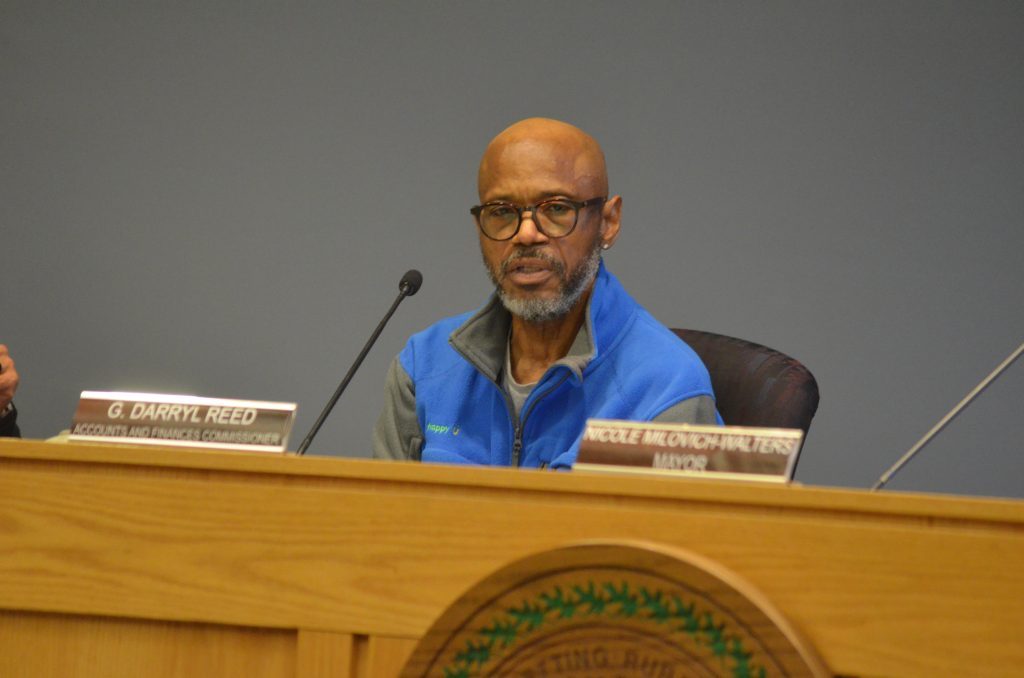
Palos Park passes $16 million budget
Spread the loveBy Jeff Vorva The Palos Park Village Council approved the 2024-25 budget, which totals a little more than $16.3 million at the April 22 village council meeting. According to village documents, it represented an increase of a shade over $603,000 from last year. The village is expecting $13.4 million in revenue and $1.86…
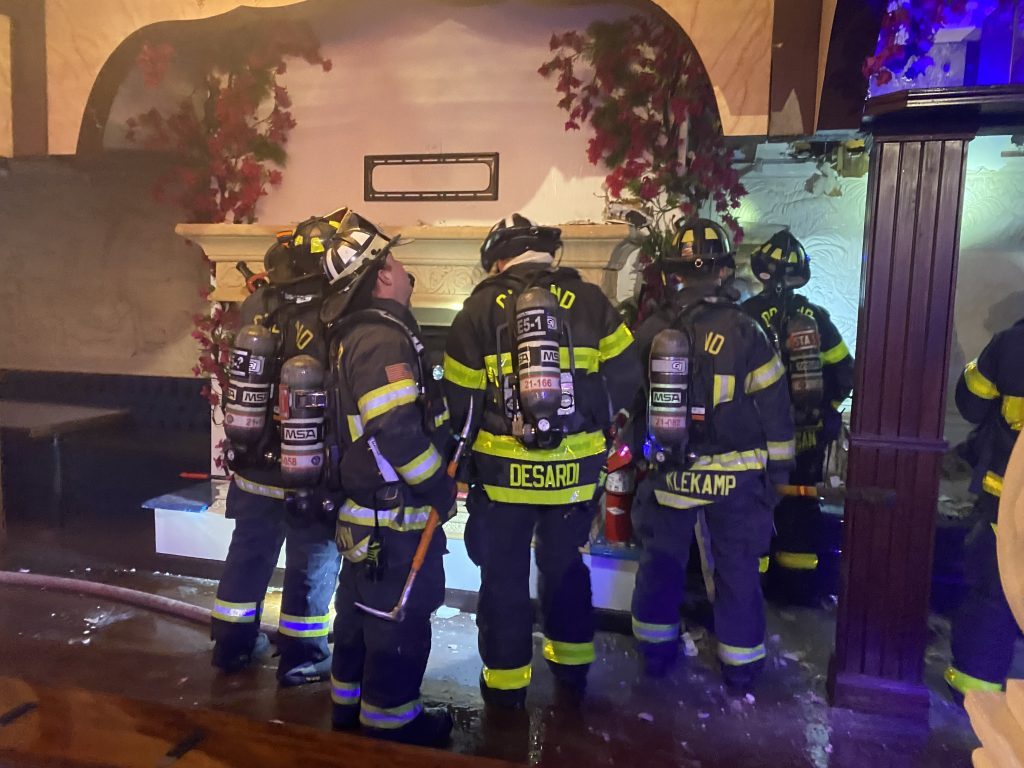
Fire damages Al Bahaar Restaurant in Orland Park
Spread the loveFrom staff reports Orland Fire Protection District firefighters responded to a fire Monday evening at the Al Bahaar Restaurant, 39 Orland Square Dr. At first, restaurant owners suspected the fire alarm was triggered by a malfunction, but as firefighters inspected the restaurant to reset the fire alarm, they detected a burning smell. “What…
Neighbors

Donate teddy bears to our local police
Spread the love. Peggy Zabicki Your correspondent in West Lawn 3633 W. 60th Place • (773) 504-9327 . Have you ever seen the 1955 movie The Night of the Hunter? The children in this movie show such bravery and acceptance in what life has thrown at them. They have to deal with unimaginable events and sadness. …

Boy Scouts collecting tattered flags for disposal
Spread the love. By Mary Stanek Your correspondent in Archer Heights and West Elsdon 3808 W. 57th Place • (773) 517-7796 . Goodbye April, hello May. Our American Flag, the symbol of our country, should always be treated with respect. But after bearing Chicago’s brutal winters and hot blazing summers along with being in the…

Oak Lawn trustee says village needs state grocery tax
Spread the loveBy Joe Boyle An Oak Lawn trustee said that Gov. J.B. Pritzker’s proposal to eliminate the state’s grocery tax will be costly for the village. Trustee William “Bud” Stalker (5th), accompanied by Mayor Terry Vorderer, recently returned from a fact-finding trip to Springfield where they learned more about the governor’s proposal to eliminate…

Palos Heights recognizes volunteers
Spread the loveBy Nuha Abdessalam Palos Heights handed out awards last week recognizing the services provided by volunteers through the years. The proclamations, which were read aloud during the city council meeting April 16, were a testament to the city’s volunteers and were handed out as part of Volunteer Recognition Week. Volunteers were cited for…

Boys Volleyball | Richards weathering struggles after run of success
Spread the loveBy Xavier Sanchez Correspondent After a tough weekend at the Smack Attack tournament, Richards got back into the win column with a two-set victory over Eisenhower in a South Suburban Red match. The Bulldogs made quick work of the Cardinals, winning 25-16, 25-15 on April 23 in Oak Lawn to snap a five-match…

SD218 puts on annual Arts Extravaganza
Spread the loveBy Kelly White The arts have become a major portion of the curriculum Community High School District 218. Showcasing those many talents, the Friends of CHSD 218’s Education Foundation proudly hosted its 15th annual Arts Extravaganza on April 5 at Eisenhower High School in Blue Island. “The Arts Extravaganza is a great event…

Gaming licenses to be tougher to get in Orland Park
Spread the loveBy Jeff Vorva It’s going to take longer to receive gaming licenses in Orland Park. The village board passed an ordinance April 15 that would allow table service businesses open at least 36 consecutive months to apply rather than the previous 18 months, and extended the probationary period to 18 months instead of…

Palos Park passes $16 million budget
Spread the loveBy Jeff Vorva The Palos Park Village Council approved the 2024-25 budget, which totals a little more than $16.3 million at the April 22 village council meeting. According to village documents, it represented an increase of a shade over $603,000 from last year. The village is expecting $13.4 million in revenue and $1.86…

Fire damages Al Bahaar Restaurant in Orland Park
Spread the loveFrom staff reports Orland Fire Protection District firefighters responded to a fire Monday evening at the Al Bahaar Restaurant, 39 Orland Square Dr. At first, restaurant owners suspected the fire alarm was triggered by a malfunction, but as firefighters inspected the restaurant to reset the fire alarm, they detected a burning smell. “What…






